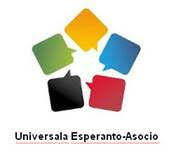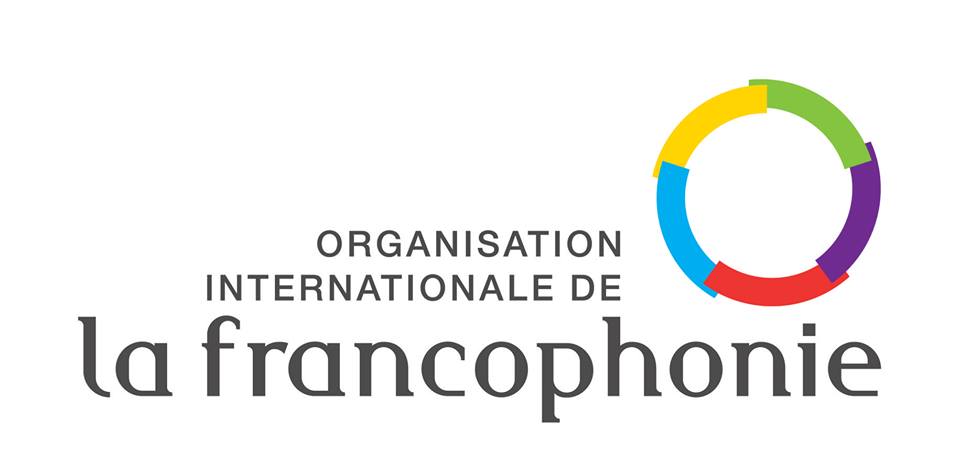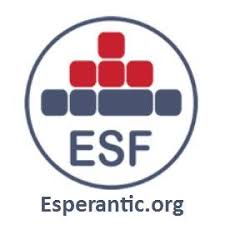


Symposium on
“The United Nations at 75: Listening, Talking and Taking Action in a Multilingual World”
on Thursday & Friday, May 9-10, 2019, at the Church Center, 777 United Nations Plaza, New York, NY 10017, USA (First Avenue at 44th Street).
 |
 |
 |
SYMPOSIUM PROGRAMME
THURSDAY, MAY 9
8:00-9:00 Registration & Coffee
9:00-9:15 Welcome
Humphrey Tonkin (Director, Center for Research and Documentation on World Language Problems)
______________________________________________________________________________
9:15-10.30 Keynote Address: Thomas Ricento (University of Calgary)
Conceptualizing Language: Linguistic Theory and Language Policy
What we believe about language and how language functions are often two different things. Sociolinguists show us how language actually functions in society, while most political theorists hold 'common sense' views on language as a discrete system used for communication without any appreciation of the complex roles that language(s) play in human interactions and civil society, especially in multilingual contexts. In order to develop inclusive and socially just policies to advance the common good, we need to better understand the ways that language actually works in society and why language diversity is not an obstacle to development but rather a resource to be valued and embraced.
______________________________________________________________________________
10:30-10.45 Break
10.45-11.45 Panel Discussion: Language and the United Nations: The View from Within
Moderator: Carole Maisonneuve, Public Information and Multilingualism Coordination Officer, DGACM, United Nations
Panelists:
H.E. Amb. Maged Abdelaziz, Permanent Observer of the League of Arab States to the United Nations
Maher Nasser, Outreach Division, UN Department of Global Communications
Jean-Victor Nkolo, Office of the Special Adviser on Africa, United Nations
Aruna Thanabalasingam, UN Department of Management Strategy, Policy and Compliance
(Affiliation is for identification purposes only. The comments of the panelists do not necessarily represent the position of the organizations or states with which they are affiliated.)
11.45-12.35 Session 1: Language & Organizations
Lisa McEntee-Atalianis & Rachelle Vessey (Birkbeck, University of London)
Language policy & diplomacy: A diachronic corpus-assisted analysis of the United Nations’ general debates on language(s) and multilingualism
Francis M. Hult (Lund University, Sweden)
Revisiting language acquisition planning for institutions and organizations
Chair: Humphrey Tonkin (President Emeritus, University of Hartford)
12.35-1.30 Lunch
____________________________________________________________________________
1.30-2.15 Keynote Address: Iris Orriss (Director of Internationalization, Facebook Inc.)
Facilitating Linguistic Diversity in Social Media
This address will explore linguistic diversity (or the lack of it) on the internet and how social media can help promote bringing emerging internet languages and endangered languages online. People today communicate in over seven thousand languages, yet most of the internet speaks less than 50. Why is it important to bring more languages online and what programs have proven successful?
_____________________________________________________________________________
2.15-3.30 Session 2: Multilingualism at Work
Jasone Cenoz & Durk Gorter (University of the Basque Country, Spain)
Creating linguistic readiness for multilingual professionals: Basque, Spanish and English in the workplace
Angela Crack (University of Portsmouth, UK)
More monologue than dialogue? Listening and language in NGO development work
Amy Jo Minett (Salem State University), Sarah Dietrich (Southeast Missouri State University)
& Didem Ekici (University of San Francisco)
Equality in dialogue: Languages, intercultural communication, and person to person peacebuilding through online service learning
Chair: Timothy Reagan (University of Maine)
3.30-3.45 Break
3.45-5.00 Session 3: Minority/Indigenous Languages
Timothy Reagan (University of Maine):
Are sign languages ‘indigenous languages’? The complexities of hearing-d/Deaf communication as an international policy issue
Jeanne McGill (Indiana University)
Official status for minority languages
Chair: Carol Benson (Teachers College, Columbia University)
5.00-5.30 Session 4: Language and the UN
Phindile Alice Dlamini (University of Swaziland)
Swaziland’s dream of linguistic representation in international organizations: Will the voice of the Swazi ever be heard in the United Nations?
Chair: Francis Hult (Lund University, Sweden)
5.30-5.45 Concluding remarks & introduction of following day’s programme
FRIDAY, MAY 10
8:00-9:00 Registration & Coffee
____________________________________________________________________________
9:00-9:45 Welcome and Keynote Address: H.E. Ambassador Narjess Saidane (Permanent Observer of the International Organization of La Francophonie to the United Nations)
Multilingualism: An essential requirement for revitalizing international relations
9:45-10:45 Panel Discussion: Language and the UN: The Diplomatic View
Moderator: Rosemary Salomone (St John’s University Law School, New York)
Panellists:
• H.E. Ambassador Issa Konfourou, Permanent Representative of Mali to the United Nations
• H.E. Ambassador Louise Blais, Deputy Permanent Representative of Canada to the United Nations
• Nuno Mathias, Deputy Permanent Representative of Portugal to the United Nations
• Daniel Prada, Counsellor, Permanent Mission of Spain to the United Nations
(Affiliation is for identification purposes only. The comments of the panelists do not necessarily represent the position of the organizations or states with which they are affiliated.)
10.45-11.00 Break
11.00-11.50 Session 5: Minority/Indigenous Languages (continued)
Belma Haznedar & Ismail Avcı-Bucaklisi (Boğaziçi University, Turkey)
The Laz people of the East Black Sea region of Turkey.
Germana Carolina Soler Millán & Guillaume Bruno Roux (University of Caldas, Colombia)
Revitalization of indigenous languages in Colombia.
Chair: Lisa McEntee-Atalianis (Birkbeck, University of London)
11:50-12.05 Break
12.05-12.55 Session 6: Multilingualism & Education
Keira Ballantyne & Francesca Di Silvio (Center for Applied Linguistics)
Multilingualism in US education systems – How do we “value all voices”?
Carol Benson & Erina Iwasaki (Teachers College, Columbia University)
Do No Harm: How a locally relevant, well integrated and highly effective bilingual primary program in Senegal is being systematically undermined by an early grade reading initiative.
Chair: Joel Gomez (Center for Applied Linguistics, Washington DC)
12.55-2.00 Lunch
2.00-2.50 Session 7: Multilingualism & Education (continued)
Eduardo D. Faingold (University of Tulsa)
Language rights to mother tongue education for immigrants in Denmark
Beyza Björkman (Stockholm University, Sweden)
Achieving linguistic equality through the medium of English as a lingua franca (ELF): Achieving mutual understanding through communicative strategies
Chair: Thomas Ricento (University of Calgary)
2.50-3.10 Break
3.10-4.00 Session 8: Multilingualism & Education (continued)
Anna Reath Warren (Uppsala University, Sweden)
Diversity as a resource: Developing multilingual literacies in Sweden and Australia
Edwin Nii Bonney (University of Missouri)
The need for equality in dialogue: When English is the education, indigenous languages are silenced.
Chair: Eduardo D. Faingold (University of Tulsa)
4:00-4.15 The protection of interpreters and translators in conflict situations: An update from RedT (Maya Hess)
4.15-4.30 A celebration of the 30th anniversary of the Convention on the Rights of the Child
4.30-5.00 Closing remarks & discussion
______________________________________________________________________________
The Study Group gratefully acknowledges the financial support of: The Center for Applied Linguistics (Washington DC), The Esperantic Studies Foundation, and L’Organisation internationale de la francophonie, without whose assistance this symposium would not have been possible.